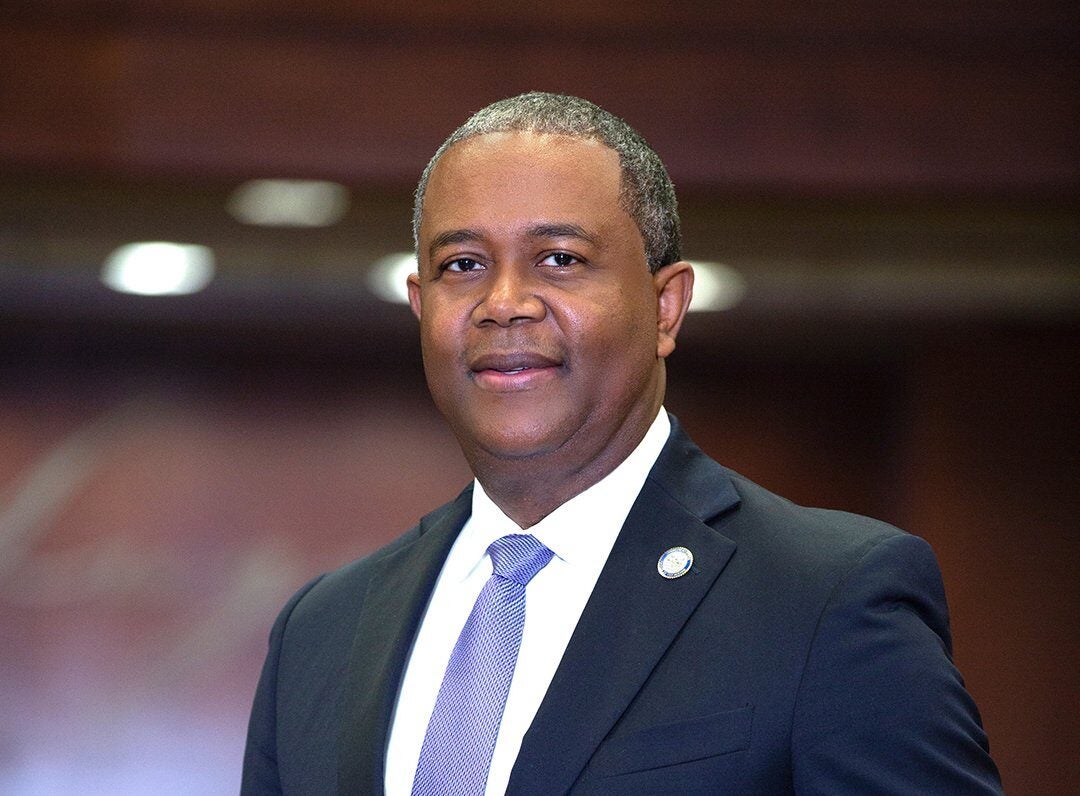The Georgia Government Transparency and Campaign Finance Commission has begun a second ethics probe involving Augusta Mayor Hardie Davis Jr. that centers on Davis’ personal campaign finance reports dating back to 2014, according to a letter sent by the Commission to Davis on Aug. 18, 2021.
According to the official complaint filed with the Commission in August, Davis is facing five counts alleging he failed to file campaign finance reports in a timely manner.
The complaint also alleges that Davis failed to file a personal finance statement for the years 2017, 2018 and 2020. Personal finance disclosures that are available on the Augusta Board of elections website appear to be duplicates of an original document.
MORE: State Ethics Commission investigation expands to include Augusta mayor and former staffer
MORE: AU basketball coach admitted, apologized for role in ‘academic dishonesty’ case
Davis did retroactively file personal disclosures on Aug.24, 2021 and, through his attorney Ed Tarver, filed a response to the Commission denying the allegations and asking that the investigation be dismissed.
[adrotate banner=”51″]
However, campaign finance forms filed in Davis’ name with the Richmond County Board of Elections contain some inconsistencies; the records show that over time, nearly $100,000 simply vanished from the books.
In the latest filing, the report lists a total of $258,825.87 in contributions received since Davis first qualified to run for mayor in 2014. The report claims that in 2020, the mayor’s campaign chest had only $348.39 left and does not offer a full accounting of expenditures over the past six years.
Over that same period, Davis has only accounted for $165,176 in expenditures, meaning that $93,649 remains unaccounted for.
Records show that, despite raising hundreds of thousands of dollars, in February 2015, Davis reported that his campaign was $15,000 in debt. That was shortly after Davis ran for his first mayoral term. However, the section pertaining to who or what entity loaned the money is blank except for one instance that shows Davis loaned his own campaign $2,272.50.
A payout for a little over $6,000 to First Bank of Georgia was made in 2015 and logged as a loan repayment, but the bank is never listed as an official creditor of the campaign, according to the documents.
Nearly all the campaign finance documents filed by Davis are at best incomplete, and many pages on the filing are entirely blank.
Records do show that the campaign paid $238 to Peabody Apartments, a government-owned apartment complex. The expenditure as “poll worker.”
Davis’ campaign also paid Constellation Energy for electricity and Comcast for cable but had no address listed as a campaign headquarters and showed no expenditures for rent. Davis’ campaign records contain no catalogued “in-kind” donations, meaning Davis’ campaign does not list any individual or company that allowed him to use a building or office rent free, which would be considered a donation made “in kind.”
Jim Cox, a 25-year veteran political consultant and local ad agency owner, says it’s true that campaigns, even simple municipal election campaigns, can cost breathtaking amounts of money. However, Cox maintains the accounting method for such campaigns is relatively simple and similar to basic accounting for a small business.
“It’s really easy to be transparent. It’s a simple spreadsheet. You line up contributions on one side and expenses on the other. Then do your basic addition and subtraction, and you should end up with a number that lines up with what’s left in your bank account,” Cox said.
Meanwhile, Davis is also embroiled in another controversy with the Georgia Government Transparency and Campaign Finance Commission. Davis and Tonia Gibbons, who served as Davis’ community relations and engagement director in the mayor’s office, have been subpoenaed in a probe concerning “dark money” used in the 2018 campaign by The Concerned Citizens of Richmond County to influence a non-binding resolution placed on that year’s ballot over whether the proposed new James Brown Arena should be built at the former Regency Mall site.
Dark money is virtually untraceable funds used for a political purpose, according to David Barbee, a long time Republican strategist and political activist.
[adrotate banner=”20″]
The Concerned Citizens of Richmond County commissioned an ad campaign using billboards in an attempt to garner support for moving the James Brown Arena to the old Regency Mall site. The group is not registered as is required by law, according to Travis Doss, assistant director at the Richmond County Board of Elections.
Documents have emerged from the Augusta Finance Office in the form of invoices and check ledgers showing that some of the so-called dark money used to fund the ad campaign included taxpayer’s funds routed through the mayor’s office to an architectural firm based in Atlanta. The Sizemore Group provided services to the campaign including the renderings used in the billboard’s design and they were paid with taxpayer’s dollars.
Barbee was the person who first noticed the possible issues that ultimately culminated in the expanded Commission investigations.
Barbee filed a complaint with the Commission shortly after the March 2018 vote.
According to Barbee, when he saw the billboards appear on Deans Bridge Road and Gordon Highway that included professional renderings of a proposed new James Brown Arena, he knew instinctively that The Concerned Citizens of Richmond County was not a grassroots organization but rather a well-funded political action committee that was not registered with the state.
“When I saw that first billboard, I realized that I might be looking at the tip of the iceberg, and sure enough, it was,” Barbee said.
The Commission does not comment on ongoing investigations, but a representative did confirm that both probes are ongoing.
Davis has not responded to phone calls or email; however, his office requested that any further questions be submitted in writing and sent directly to the City Attorney’s Office.
Scott Hudson is the Senior Reporter for The Augusta Press. Reach him at scott@theaugustapress.com











